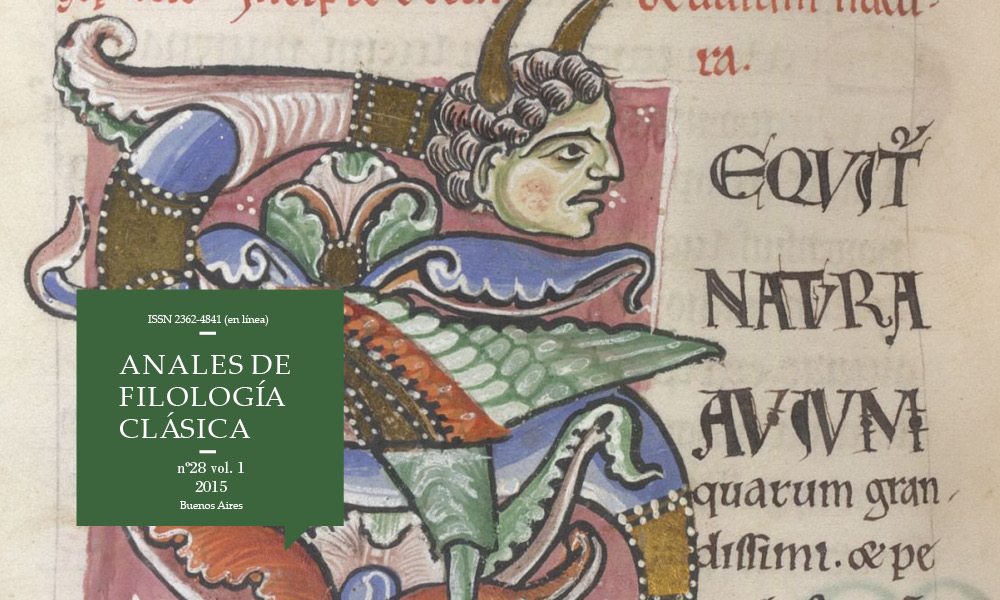Shortening and anastrophe in the Homeric dialect
Keywords:
Homeric Greek, shortening, anastrophe, prepositions, proclisis
Abstract
This article analyzes the relationship between shortening and anastrophe in Homeric Greek. Such phenomena involve the exploration of elision, assimi-lation and proclisis, as related processes affecting a small set of expressions, mainly of prepositional value. Prosodic morphology is invoked to deal with the conditions governing shortening (called apocope in tradition). Three environments of anastrophe (supposed to be the preservation of the orthotony of prepositions in post-lexical phonology) are characterized with the admission of empty categories in syntax as well as in phonological representation. Proclisis is understood as a default process associated with post-lexical anteposition.Downloads
Download data is not yet available.
How to Cite
Him Fábrega, R. (1). Shortening and anastrophe in the Homeric dialect. Anales De Filología Clásica, 1(28), 33-48. https://doi.org/10.34096/afc.v1i28.2528
Issue
Section
Artículos
Los autores/as que publiquen en esta revista aceptan las siguientes condiciones:
- Los autores/as conservan los derechos de autor y ceden a la revista el derecho de la primera publicación, con el trabajo registrado con la licencia de Atribución-CompartirIgual 4.0 Internacional (CC-BY-SA 4.0) de Creative Commons, que permite el uso comercial de la obra y de las posibles obras derivadas, la distribución de las cuales se debe hacer con una licencia igual a la que regula la obra original.
- Los autores/as pueden realizar otros acuerdos contractuales independientes y adicionales para la distribución no exclusiva de la versión del artículo publicado en esta revista (p. ej., incluirlo en un repositorio institucional o publicarlo en un libro) siempre que indiquen claramente que el trabajo se publicó por primera vez en esta revista.
- Se permite y recomienda a los autores/as a publicar su trabajo en Internet (por ejemplo en páginas institucionales o personales) antes y durante el proceso de revisión y publicación, ya que puede conducir a intercambios productivos y a una mayor y más rápida difusión del trabajo publicado (vea The Effect of Open Access).
En ningún momento se cobrará monto alguno al autor por la publicación en esta revista.







